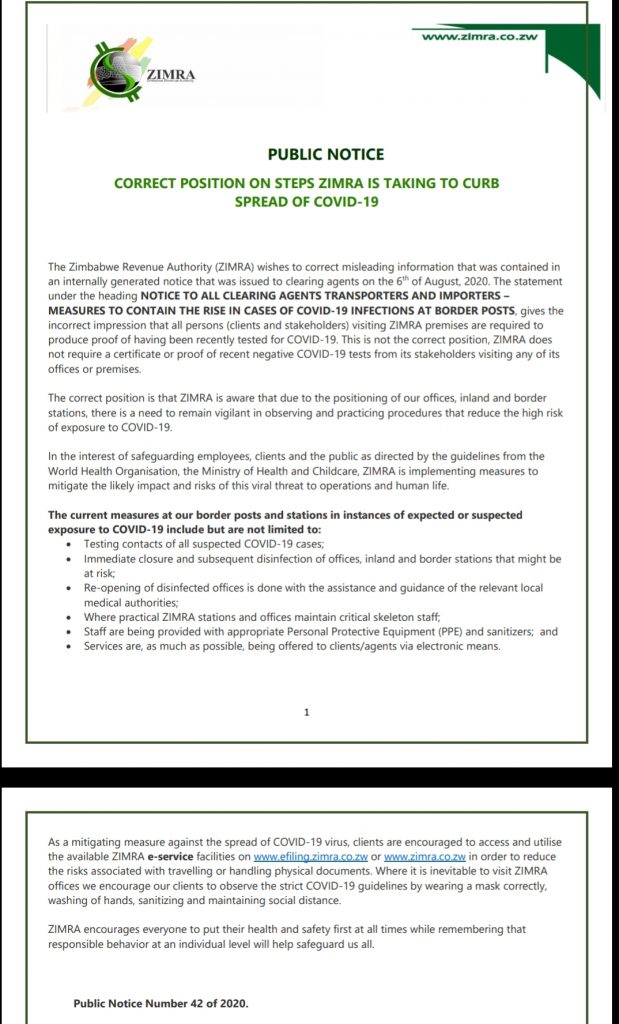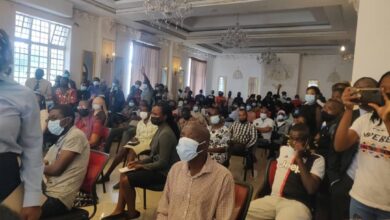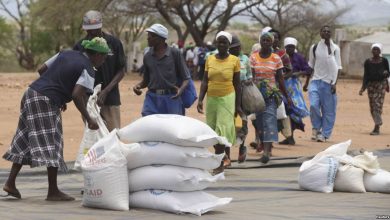
The Zimbabwe Revenue Authority (ZIMRA) has backtracked on its earlier pronouncement that anyone who visits any of their premises should produce their Covid-19 test results.
“ALL persons entering the ZIMRA areas specified herein that is border posts, transit sheds, container depots, bonded warehouses, airports, aerodromes and airstrips, postal sorting offices, state warehouses, administration and cash offices, satellite offices, and any other service delivery point, inland or at any border post will be required to have been tested for Covid-19 and to provide such proof as it is verifiable to the effect that such tests have been carried out and the individual is free of the infection,” ZIMRA had said in its initial notice to clearing agents, transporters and importers.
However, the revenue collector has made a u-turn saying it will no longer require a certificate or proof of recent negative Covid-19 tests from its stakeholders visiting any of its offices or premises.

The earlier move had received criticism from stakeholders who said ZIMRA’s position raised concerns as it poses considerable ethical challenges and would most likely result in an increase in illegal activities including border jumping and production of fraudulent Covid-19 test certificates.
In an updated statement, ZIMRA said it would remain vigilant in putting up procedures that lessened exposure to Covid-19.
“The correct position is ZIMRA is aware that due to the positioning of its offices, inland, and border stations, there is a need to remain vigilant in observing and practising procedures that reduce the high risk of exposure to Covid-19” said the revenue authority.

In an interview with CITE, Chairperson of the Zimbabwe Community in South Africa, Nicholas Ngqabutho Mabhena, said it was wise for ZIMRA to revise its position as such a move imposed restrictions on who can or cannot participate in social, civic and economic activities, as some people could not easily access such documentation.
“Before Covid-19 people struggled to access proper travelling documentation, evidenced by numbers who did border jumping while some Zimbabweans in South Africa would also send goods back home via informal means, now such a requirement may make it worse,” he noted.
Mabhena warned such a stance would see more people engage in corrupt dealings.
“The position ZIMRA was taking was not going to assist in reducing numbers of people with Covid-19 but more individuals were going to use illegal entry points to evade ZIMRA.
“Instead ZIMRA must have a system of testing people’s temperatures and minimise contact of individuals, travellers and employees. If ZIMRA said persons must provide proof of having been tested, it would have encouraged people not to use border but use illegal means,” Mabhena said.
Critical studies scholar, Khanyile Mlotshwa described ZIMRA’s initial requirement as elitist, noting the country had challenges with Covid-19 testing due to test kits shortages and backlog.
“Besides we learnt from health experts that proof of testing does not mean one cannot be infected with Covid-19. Someone can be infected after a few hours after testing. What must be enforced is prevention and adherence to prescribed Covid-19 regulations -wearing of masks, washing hands and physical distancing,” he said.
In April 24, 2020, the World Health Organisation (WHO) advised, “there is currently no evidence that people who have recovered from Covid-19 and have antibodies are protected from a second infection…at this point in the pandemic, there is not enough evidence about the effectiveness of antibody-mediated immunity to guarantee the accuracy of an ‘immunity passport.’”
Meanwhile, government hospitals in Bulawayo dismissed claims they would not be attending to people without producing Covid-19 testing certificates.
Mpilo Central Hospital Acting Clinical Director Dr Xolani Ndlovu said there is no standing directive people would not be attended to without a Covid-19 Polymerase Chain Result (PCR) test result.
“All patients are urged to seek medical attention as per the provision of the city zones and if one tests positive for the virus, they are then referred to the relevant facilities. According to our agreement, United Bulawayo Hospitals (UBH) is the hospital that is going to be admitting patients that have Covid-19. This only applies to admission and doesn’t include medical attention at casualty,” he said.






